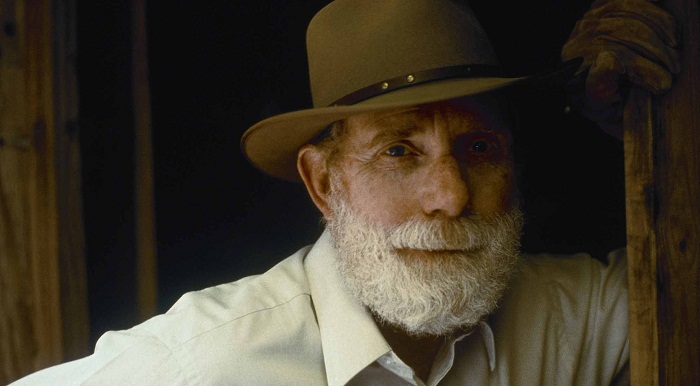Of Mountains and Men: Ivan Doig’s Restful, Earthen Fiction
By Matt Staggs

Ivan Doig © Carol Doig
On August 18, bookstores and libraries in Montana, Portland, San Francisco, and Utah celebrated Ivan Doig day, recognizing the life and literary legacy of the author who died this past April.
Doig authored thirteen novels, the majority of which told the stories of ordinary men and women and their lives among the mountains and prairies of Montana. His final novel, Last Bus to Wisdom, was published Tuesday.
Last Bus to Wisdom is the story of Donal Cameron, an eleven-year-old boy being raised on a Montana ranch by his grandmother, a cook. When she becomes ill, Donal is sent away to live with an aunt in Wisconsin. After the aunt proves to be less than hospitable, Donal, along with his henpecked uncle, decide to catch a bus back to Montana.
Like much of Doig’s fiction, Last Bus to Wisdom is loosely autobiographical.
Doig’s childhood was steeped in the hardscrabble world of itinerant ranch work. After losing his mother at a very young age, Doig spent his early years traveling the state from job to job with his ranch-hand father. The two eventually found a more permanent home working on a sheep ranch with Doig’s grandmother.
While his youthful experiences in Montana left an indelible impression, they didn’t keep him from leaving the state to broaden his horizons. Doig may have been a true son of the soil, but he was a highly educated one.
After finishing high school, Doig relocated to Chicago to attend Northwestern University. He began a writing career in earnest while working on a masters degree in journalism, editing and freelancing for a string of magazines and newspapers. This was followed by a PhD in American history at the University of Washington.
At the time, Doig had envisioned a career in academia, but found his attention turning toward writing poetry, then prose. The former no doubt influenced the latter, as Doig's deeply lyrical, impressionist fiction will attest. His novels, rooted in the Montana soil as they were, possessed an element of the fantastic as well.
While Doig was often considered a writer of Westerns, it was a label that he himself rejected: "I don’t think of myself as a 'Western' writer,"Doig wrote. "To me, language -- the substance on the page, that poetry under the prose -- is the ultimate 'region,' the true home, for a writer."
For Doig, that "true home" was Two Medicine Country: a fictional analogue for the rural Montana landscape of Doig’s youth. Like Faulkner and his own Yoknapatwpha, Doig populated Two Medicine Country with a cast of memorable characters, including the McCaskill family, a ranching dynasty at the center of Doig’s beloved Montana trilogy.
Doig returned to Two Medicine Country many, many times over the course of his career, and with the publication of Last Bus to Wisdom, his final journey is complete. Two Medicine Country has been Doig’s "true home" for a great many decades. Chances are that readers will find it a pleasant place to stay, too.
